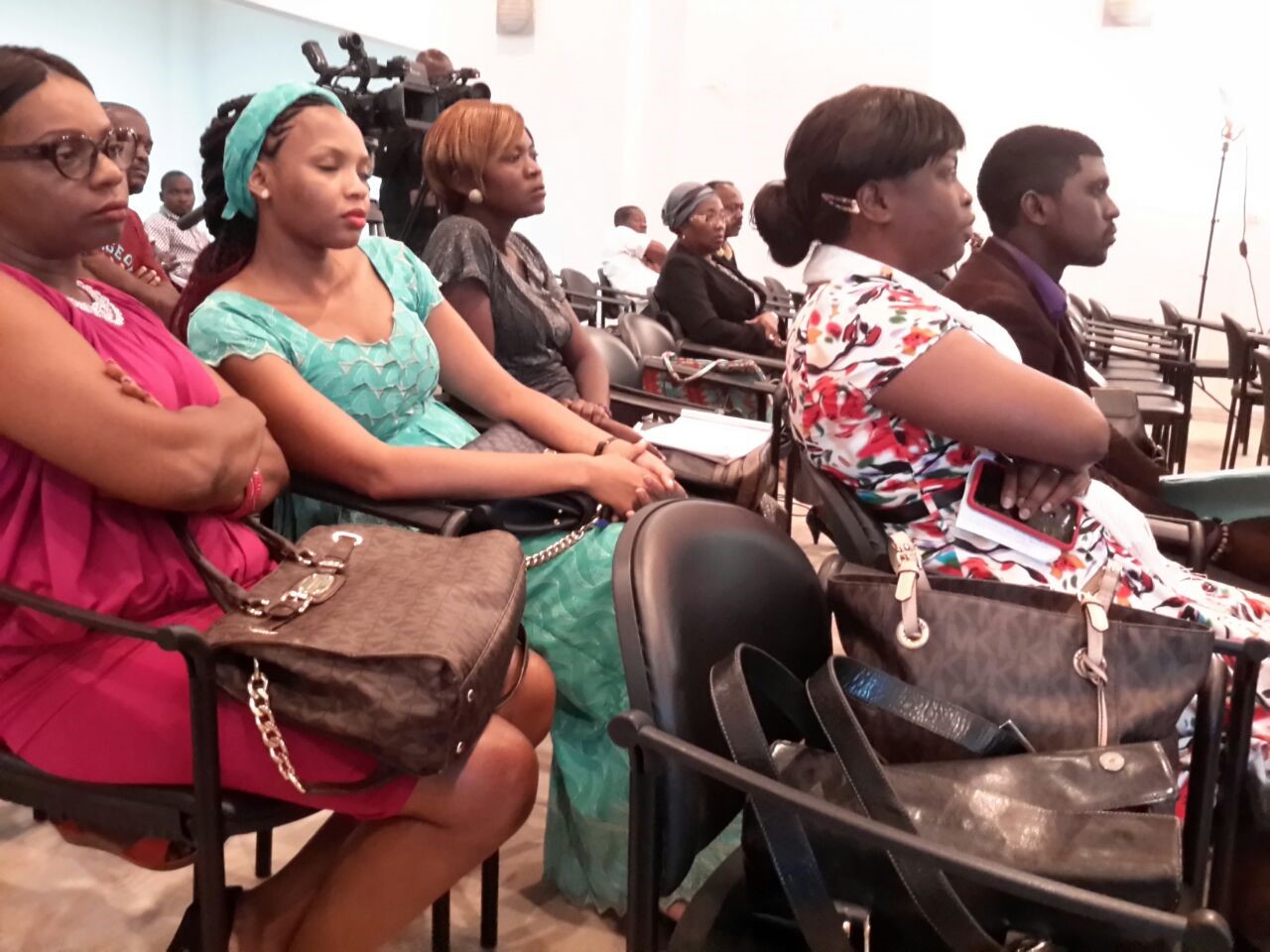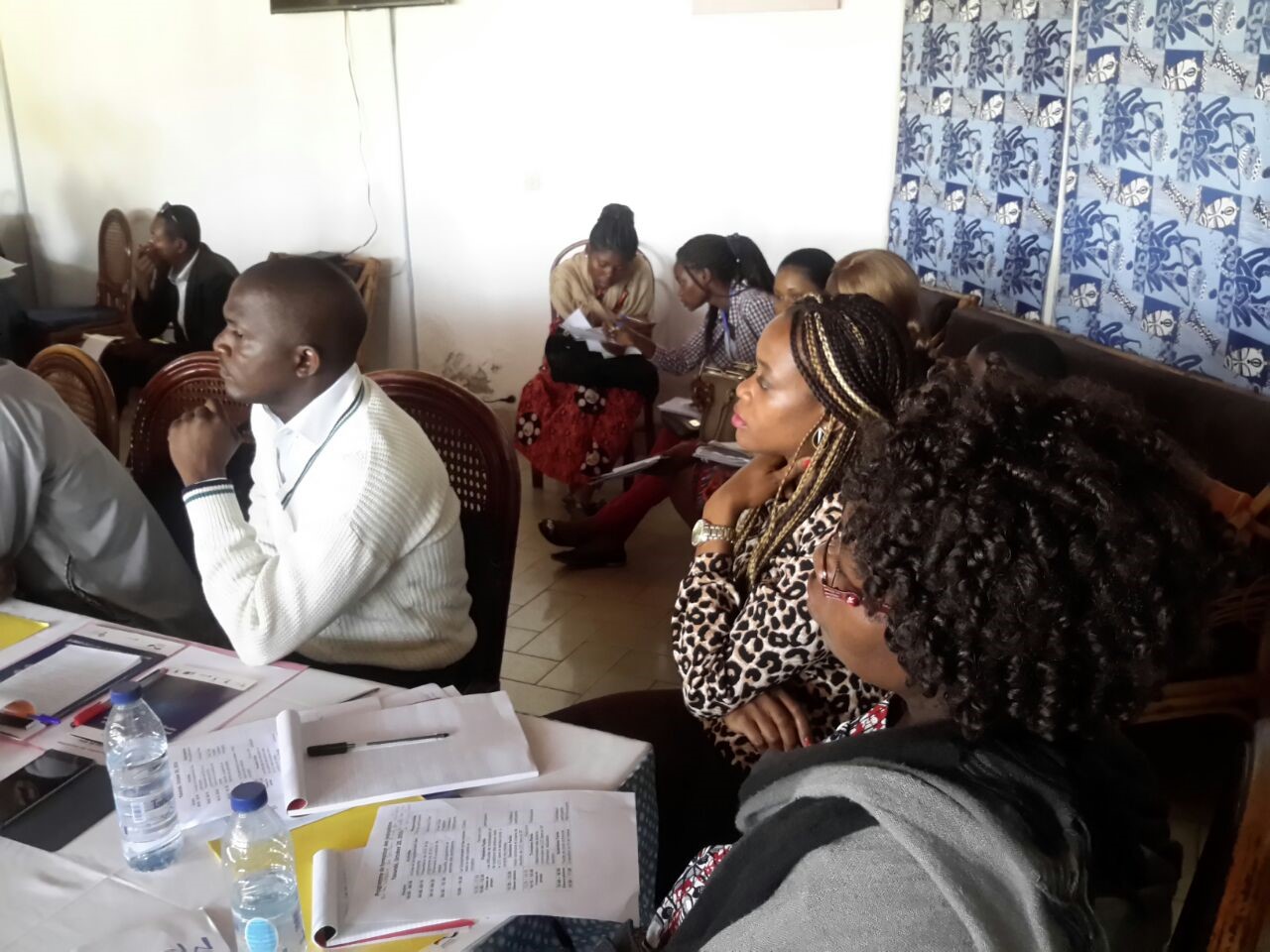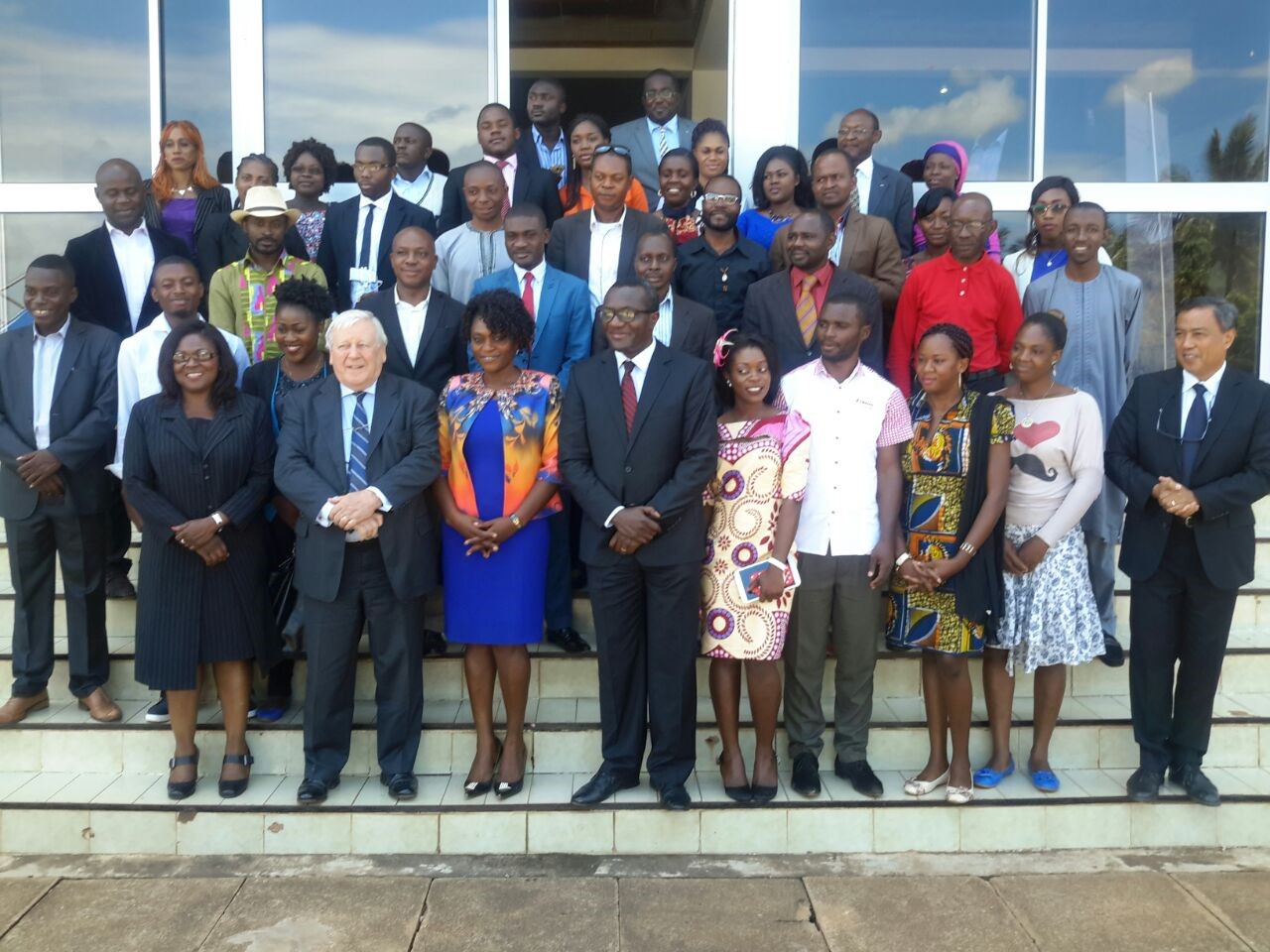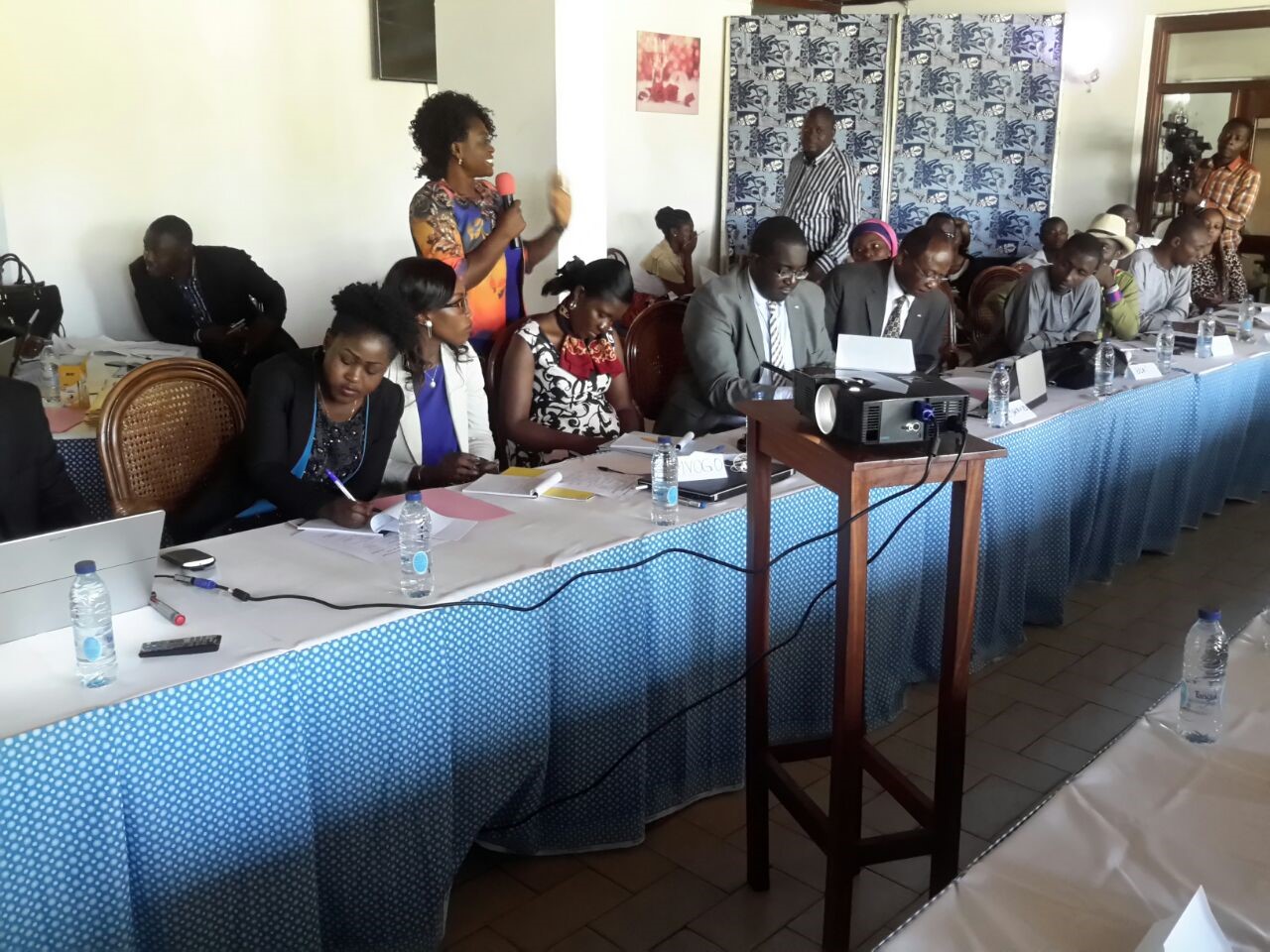BCAC Cameroon – for a culture of integrity
By Milena Rampoldi and
Denise Nanni, ProMosaik. Hereby our interview with the organisation BCAC, the
Business Coalition against Corruption in Cameroon. There are no development and
justice without a culture of integrity. Would like to thank Beatrice for her
time.
Denise Nanni, ProMosaik. Hereby our interview with the organisation BCAC, the
Business Coalition against Corruption in Cameroon. There are no development and
justice without a culture of integrity. Would like to thank Beatrice for her
time.

How was BCAC founded?
Established in February 2011 by the Business Council
for Africa (BCA), the Business Coalition against corruption (BCAC) is a
private-sector-led initiative aimed at supporting the Government of Cameroon in
improving the business climate and achieving its ambition to become an emerging
economy.
for Africa (BCA), the Business Coalition against corruption (BCAC) is a
private-sector-led initiative aimed at supporting the Government of Cameroon in
improving the business climate and achieving its ambition to become an emerging
economy.
It was born from the
strong belief of its founders that it is possible to work together to create “A
Cameroon Business Environment without Corruption”, to change the mindset of and
progressively migrate the mindset of all the stakeholders from the prevailing
“nothing can be done” to “yes we must”.
strong belief of its founders that it is possible to work together to create “A
Cameroon Business Environment without Corruption”, to change the mindset of and
progressively migrate the mindset of all the stakeholders from the prevailing
“nothing can be done” to “yes we must”.
It is essentially a platform for sharing best practice
in fostering a culture of integrity in the conduct of business and instituting
corporate compliance. Membership of the BCAC enables companies to share
training opportunities and to access a mentoring service primarily supported by
the larger companies. In short the BCAC helps equip companies with the
tools to better fight corruption.
in fostering a culture of integrity in the conduct of business and instituting
corporate compliance. Membership of the BCAC enables companies to share
training opportunities and to access a mentoring service primarily supported by
the larger companies. In short the BCAC helps equip companies with the
tools to better fight corruption.

What are the main social
and economic issues related to corruption in Cameroon?
and economic issues related to corruption in Cameroon?
Corruption has been said to be one of the most
prominent deterrents to development. Cameroon has been named twice by
Transparency International as the most corrupt country in the world. Even
though Cameroon is no longer the most corrupt country, we are still up there
amongst the most corrupt countries in the world.
prominent deterrents to development. Cameroon has been named twice by
Transparency International as the most corrupt country in the world. Even
though Cameroon is no longer the most corrupt country, we are still up there
amongst the most corrupt countries in the world.
According to the United Nations, “Corruption is harmful. Corruption is unfair because it harms those without a
voice to resist it. Corruption results in a loss of values and morality,
corruption results in financial loss for companies and for all of us, corruption
results in loss of trust in government, justice and public services, corruption
results in illegal activities, encourages organized crime; in summary, corruption
creates an inefficient society undermined by fear and insecurity.”
voice to resist it. Corruption results in a loss of values and morality,
corruption results in financial loss for companies and for all of us, corruption
results in loss of trust in government, justice and public services, corruption
results in illegal activities, encourages organized crime; in summary, corruption
creates an inefficient society undermined by fear and insecurity.”
“Corruption represents a major threat to the rule of
law and sustainable development the world over. It has a disproportionate,
destructive impact on the poor and most vulnerable, and it is also quite simply
bad for business.
law and sustainable development the world over. It has a disproportionate,
destructive impact on the poor and most vulnerable, and it is also quite simply
bad for business.
Corruption stifles economic growth, distorts
competition and presents serious legal and reputational risks. It drives away
investors by acting as a hidden “tax” or illegal overhead charge, thereby
increasing costs for companies, and further down the chain, their customers.
competition and presents serious legal and reputational risks. It drives away
investors by acting as a hidden “tax” or illegal overhead charge, thereby
increasing costs for companies, and further down the chain, their customers.
Corrupt practices are detrimental to all
businesses—large and small, multinational and local. Corporate scandals have
rocked financial markets (BICEC) and undermined investor confidence. Such
incidents also receive enormous attention from the public and the media, and
hit the reputations of more than just the particular entity or persons involved”.
businesses—large and small, multinational and local. Corporate scandals have
rocked financial markets (BICEC) and undermined investor confidence. Such
incidents also receive enormous attention from the public and the media, and
hit the reputations of more than just the particular entity or persons involved”.
In Cameroon all these ills are evidenced in the lack
of basic structures such health, education, roads, water, electricity, housing,
you name it. If all the money meant for the state went into the state coffers
and if all the money dished out for infrastructure was actually spent
efficiently and effectively on what it was supposed to be spent on then we
would already be developed, and we would not be talking about developing in
2035.
of basic structures such health, education, roads, water, electricity, housing,
you name it. If all the money meant for the state went into the state coffers
and if all the money dished out for infrastructure was actually spent
efficiently and effectively on what it was supposed to be spent on then we
would already be developed, and we would not be talking about developing in
2035.

What kind of trainings
do you offer?
do you offer?
It is now generally accepted that businesses have a
responsibility to act as good corporate citizens. Thus the Business Coalition
against Corruption offers training aimed at raising awareness within
individuals and companies about the ills of corruption, helping companies to develop
and put in place ethics and compliance programmes that will lead to a code of
ethics understood and adhered to by all employees and ultimately lead to good
governance and transparency. The BCAC provides generalized and tailor made
training according to the core and needs of the company. There are general
rules of ethics and good governance but specific rules for each sector of the
society. For example the rules for Doctors and Lawyers are different.
responsibility to act as good corporate citizens. Thus the Business Coalition
against Corruption offers training aimed at raising awareness within
individuals and companies about the ills of corruption, helping companies to develop
and put in place ethics and compliance programmes that will lead to a code of
ethics understood and adhered to by all employees and ultimately lead to good
governance and transparency. The BCAC provides generalized and tailor made
training according to the core and needs of the company. There are general
rules of ethics and good governance but specific rules for each sector of the
society. For example the rules for Doctors and Lawyers are different.
How has civil society been
responsive to your work so far?
responsive to your work so far?
We work with civil society so far only in our
collaboration with CONAC and other anti-corruption partners. However according
to the 2015 anti-corruption report from CONAC, there has been an increase in
the number of civil society involved in the fight against corruption with an
increase in activities.
collaboration with CONAC and other anti-corruption partners. However according
to the 2015 anti-corruption report from CONAC, there has been an increase in
the number of civil society involved in the fight against corruption with an
increase in activities.

Do you cooperate with
local authorities and institutions? If yes, how?
local authorities and institutions? If yes, how?
Corruption is a crime with far reaching consequences
for both businesses and government. Thus creating real solutions to corruption
involves participation from all sectors, including the private sector. The
Business Coalition against Corruption works in collaboration with local
authorities such as CONAC, Transparency international, and has as strategic
partners, GICAM, ECAM and GFAC.
for both businesses and government. Thus creating real solutions to corruption
involves participation from all sectors, including the private sector. The
Business Coalition against Corruption works in collaboration with local
authorities such as CONAC, Transparency international, and has as strategic
partners, GICAM, ECAM and GFAC.
We believe that since corruption touches all aspect of
society everyone should be concerned about corruption and therefore
individually and collectively join in the fight against this scourge that takes
away income from social services that will benefit the society into private
pockets, increases the costs of doing business which also ends up increasing
the costs of products and reduces income all across the board. Therefore all
aspects of society should be in this fight and we work with and collaborate
with all the key actors on the ground to fight against corruption. It’s a slow
but very steady journey and together we shall reduce it to the barest minimum.
Corruption, Your “NO” counts.
society everyone should be concerned about corruption and therefore
individually and collectively join in the fight against this scourge that takes
away income from social services that will benefit the society into private
pockets, increases the costs of doing business which also ends up increasing
the costs of products and reduces income all across the board. Therefore all
aspects of society should be in this fight and we work with and collaborate
with all the key actors on the ground to fight against corruption. It’s a slow
but very steady journey and together we shall reduce it to the barest minimum.
Corruption, Your “NO” counts.


